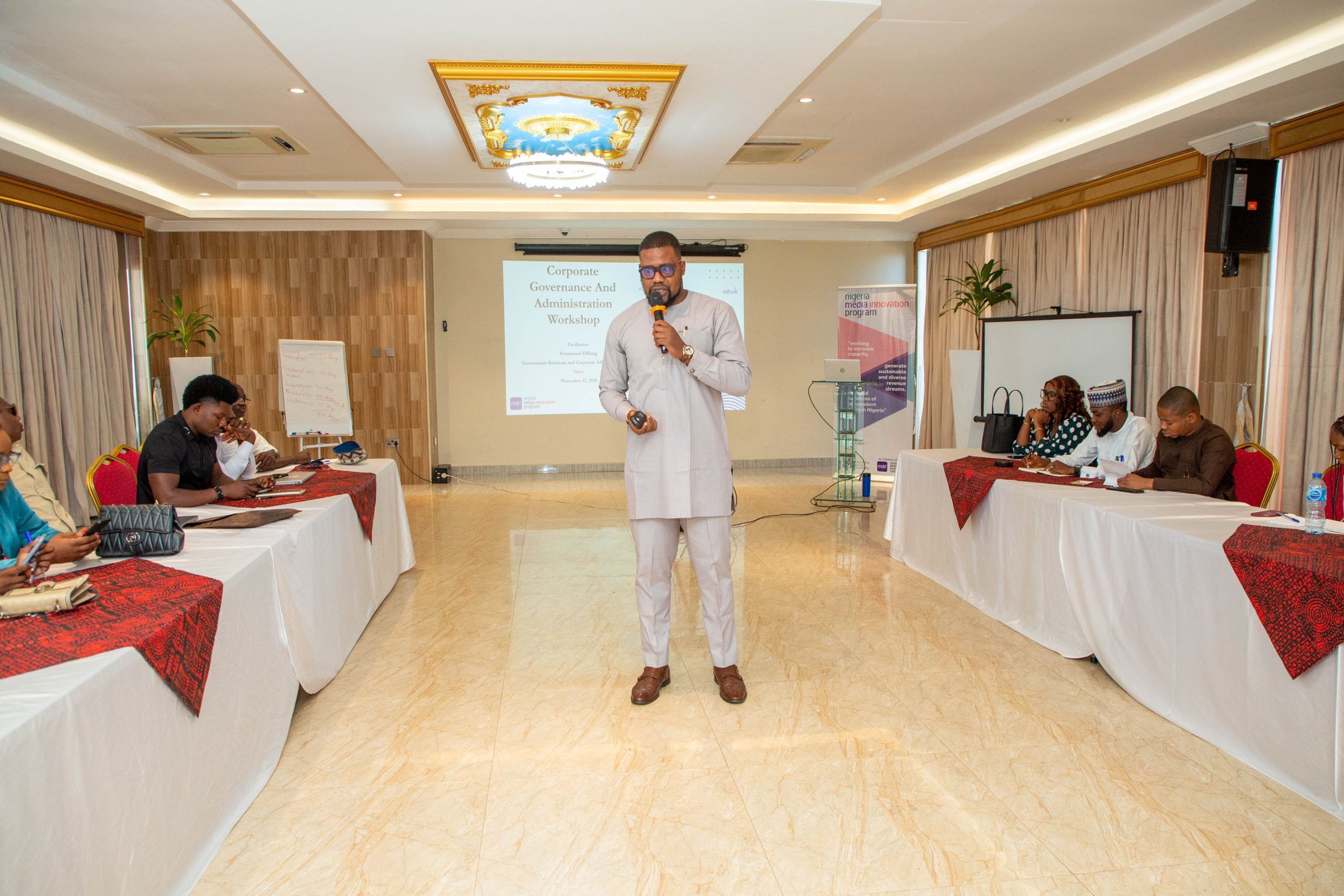By Vivian Ojomu
Corporate governance, described as the system of rules, practices, and processes guiding a company, is anchored on four core principles: People, Purpose, Process, and Performance. These principles ensure that governance is human-centered, mission-driven, efficient, and focused on continual improvement.
The NAMIP Corporate Governance Workshop, facilitated by Emmanuel Effiong, brought media professionals together on November 12, 2024, to explore principles and practices of corporate governance. The session emphasized the importance of robust governance in ensuring the sustainability, accountability, and ethical functioning of media organisations.
Participants explored how media organisations could leverage governance to align stakeholders’ interests, including shareholders, employees, customers, and communities while building public trust and enhancing operational clarity. We highlight a few lessons here:
Key Principles and Benefits
Emmanuel highlighted core governance principles such as accountability, fairness, transparency, and independence. For media organisations, these principles translate to:
- Building reputation and trust with audiences.
- Ensuring regulatory compliance to navigate complex industry standards.
- Attracting investor confidence through transparency and stability.
These principles are especially critical in the media sector, where credibility and public trust are the lifeblood of operations.
Effective Communication in Governance
“Good governance dies in darkness,” This quote by Emmanuel anchored the discussion around the importance of effective communication. Participants explored case studies that demonstrated how clear, transparent communication fosters stakeholder confidence and crisis resilience.
For media organisations, sharing executive profiles, governance policies, and clear financial reports can enhance credibility and attract support from audiences and investors.
Governance Models and Board Roles
Emmanuel introduced various board governance models, including advisory boards, governance boards, and working boards. Participants learned how to tailor board structures to their organization’s size and needs. The session emphasized the importance of:
- Board composition: Diversity in skills, experiences, and backgrounds.
- Policy oversight: Clear roles for the board and executive team to avoid micromanagement.
- High-impact board meetings: Efficient, data-driven sessions focused on strategic priorities.
The role of board committees, such as audit and finance committees, was also discussed, highlighting their contribution to effective governance.
Practical Applications and Emerging Trends
The workshop delved into contemporary governance challenges, such as cybersecurity, data privacy, and ESG (Environmental, Social, and Governance) integration. These emerging trends demand that media boards:
- Embrace innovative technologies.
- Foster inclusive and adaptable cultures.
- Prioritize ethics in artificial intelligence and digital governance.
Lessons Learned
Participants left with actionable insights, including:
- The necessity of stakeholder engagement and transparent communication.
- Strategies for balancing regulatory compliance with editorial independence.
- The value of board diversity and the inclusion of digital expertise.
Impact and Reflection
The NAMIP Corporate Governance Workshop served as a pivotal learning platform for media professionals, equipping them with tools to strengthen governance frameworks within their organizations. By focusing on accountability, transparency, and innovation, media organizations can not only navigate today’s challenges but also secure long-term sustainability and growth.
For media professionals, the lessons from this workshop underscore a fundamental truth: strong governance is not a luxury—it’s a necessity.

